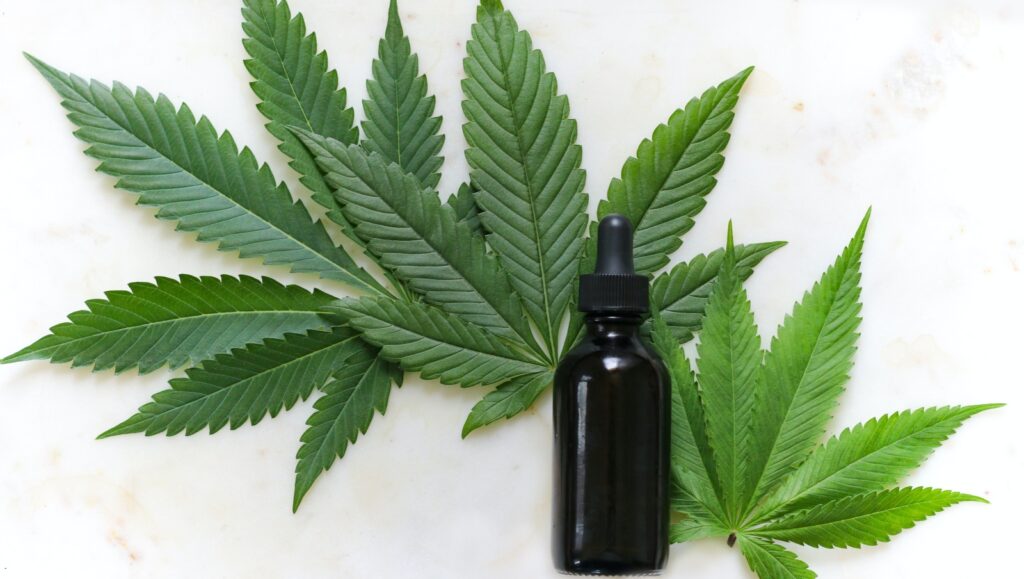Autism is a complex neurodevelopmental disorder that affects individuals in various ways. Challenges in social interactions, communication, and behavior characterize it. For those with autism, navigating everyday life can be overwhelming and demanding. However, with a compassionate approach, there are potential solutions that can help alleviate some of the challenges associated with autism.
In recent years, CBD has emerged as a promising option for individuals with autism. CBD, short for cannabidiol, is a natural compound in the Cannabis sativa plant. Unlike its well-known counterpart, THC, CBD is non-psychoactive, meaning it does not produce the “high” associated with marijuana use. Instead, it offers a range of potential therapeutic benefits.
In this article, we will delve into the potential benefits of CBD for individuals with autism and explore how it can improve their quality of life. We will also discuss the importance of consulting with healthcare professionals and ensuring proper dosage and quality control.
By the end of this article, you will better understand how CBD can be a compassionate approach for individuals with autism. So, let’s dive in and explore the world of CBD and its potential to impact the lives of those with autism positively.
What is CBD?
To understand the potential benefits of CBD for individuals with autism, it is important first to have a brief explanation of what CBD is and its properties.
CBD, short for cannabidiol, is a naturally occurring compound in the cannabis plant. However, it is important to note that CBD is non-intoxicating and does not produce the psychoactive effects commonly associated with cannabis use. This means CBD will not make you feel “high” or alter your mind.
One of the key properties of CBD is its interaction with the endocannabinoid system (ECS) in the human body. The ECS is a complex network of receptors and neurotransmitters that regulate various physiological processes, including mood, appetite, pain sensation, and immune response.
When consumed, CBD interacts with the ECS, helping promote balance and homeostasis within the body. This is believed to be the reason behind the potential therapeutic effects of CBD.
It is worth mentioning that CBD is available in various forms, such as CBD gummies, CBD capsules, and CBD edibles, making it convenient and accessible for individuals seeking its potential benefits.
CBD has gained significant attention in recent years due to its wide range of potential health benefits. Research and anecdotal evidence suggest that CBD may help with conditions such as ADHD, inflammation, pain relief, cancer, arthritis, depression, insomnia, migraines, weight loss, acne, eczema, and fibromyalgia. However, it is important to note that further research is needed to fully understand the extent of CBD’s therapeutic potential for these conditions.
Before incorporating CBD into your daily routine, it is crucial to consult with a healthcare professional who can guide proper dosage and potential interactions with other medications. This will ensure that you are using CBD safely and effectively.
In the next section, we will delve into the potential benefits of CBD, specifically for individuals with autism, shedding light on how it may help alleviate some of the challenges associated with the condition. Stay tuned!
Note: For more information on CBD, its benefits, dosage, side effects, and legal aspects, you can visit our comprehensive CBD information page.
CBD and Autism
Individuals with autism often face unique challenges affecting their daily lives and overall well-being. While there is no cure for autism, there are various approaches and therapies aimed at improving the quality of life for these individuals. One emerging area of interest is the potential use of CBD as a compassionate approach for individuals with autism.
CBD, or cannabidiol, is a natural compound in the cannabis plant. Unlike THC, CBD does not cause psychoactive effects, making it a safe and non-intoxicating option for individuals seeking therapeutic benefits.
Research and anecdotal evidence suggest that CBD may offer a range of potential benefits for individuals with autism. Studies have shown that CBD can help alleviate symptoms commonly associated with autism, such as anxiety, stress, and sensory sensitivities.
One of the key benefits of CBD for individuals with autism is its ability to reduce anxiety and stress. Anxiety is a common co-occurring condition in individuals with autism, and it can significantly impact their daily functioning. CBD has been found to have anxiolytic properties, meaning it can help reduce feelings of anxiety and promote a sense of calmness and relaxation.
Moreover, CBD may also improve social interactions and communication skills in individuals with autism. Social deficits are a hallmark of autism, and CBD has shown promise in enhancing social behavior by reducing social anxiety and improving social cognition.
In addition to anxiety and social difficulties, individuals with autism often experience sensory sensitivities, such as hypersensitivity to noise, light, or touch. CBD may help manage these sensitivities by modulating the endocannabinoid system, which plays a crucial role in sensory processing. By promoting balance within this system, CBD may help individuals with autism better regulate their sensory experiences.
Furthermore, CBD can potentially enhance overall well-being in individuals with autism. It can promote better sleep, reduce irritability and aggression, and improve mood stability. These benefits can significantly impact the daily lives of individuals with autism and their families.
While the research on CBD and autism is still in its early stages, preliminary studies and anecdotal reports are encouraging. However, it is essential to consult with a healthcare professional before considering CBD as a treatment option for autism. They can guide proper dosage and potential interactions with other medications and help ensure the overall safety of CBD use.
In conclusion, CBD holds promise as a compassionate approach for individuals with autism. Its potential benefits in reducing anxiety, improving social interactions, managing sensory sensitivities, and enhancing overall well-being make it an intriguing option worth exploring. As more research is conducted in this area, we hope to understand better how CBD can further improve the lives of individuals with autism.
For more information on CBD and its various applications, you can visit Mr. Mean Green.
How CBD Can Help
CBD, or cannabidiol, has shown great promise in helping individuals with autism navigate their unique challenges. This natural compound derived from the cannabis plant has been gaining attention for its potential therapeutic benefits. Let’s explore how CBD can positively impact the lives of those with autism.
Reduction of anxiety and stress
Anxiety and stress are common symptoms experienced by individuals with autism. CBD has been found to have calming effects on the nervous system, helping reduce anxiety and promote relaxation. By interacting with the body’s endocannabinoid system, CBD can help regulate emotional responses and alleviate feelings of stress. Reducing anxiety and stress can significantly improve the quality of life for individuals with autism, enabling them to better cope with daily challenges.
Improvement in social interactions and communication
One of the core difficulties faced by individuals with autism is social interaction and communication. CBD can potentially enhance these areas by reducing social anxiety and improving mood. By modulating neurotransmitter activity in the brain, CBD can promote a sense of calmness and ease, making social situations less overwhelming. Improving social interactions and communication can lead to stronger connections and an enhanced ability to express oneself.
Managing sensory sensitivities
Individuals with autism often experience heightened sensory sensitivities, leading to discomfort and distress. CBD has been shown to positively impact sensory processing, helping to regulate sensory responses and reduce hypersensitivity. By modulating the activity of receptors in the brain, CBD can promote a more balanced sensory experience. Managing sensory sensitivities can greatly improve the daily lives of individuals with autism, allowing them to engage with their environment more comfortably.
Enhancing overall well-being
CBD is known for its potential to promote overall well-being. By interacting with the body’s endocannabinoid system, CBD can help restore balance and harmony within the body. This can positively impact various aspects of health, including sleep, appetite, and mood. Enhancing overall well-being can lead to improved quality of life for individuals with autism, supporting their physical and emotional needs.
Incorporating CBD into a holistic approach to autism management can provide individuals with a compassionate and natural option for addressing their unique challenges. However, it is important to note that CBD should never replace conventional treatments or therapies. It is always wise to consult with a healthcare professional before incorporating CBD into an autism management plan. They can guide proper dosage potential interactions and ensure CBD is used safely and effectively.
In the next section, we will explore personal stories and testimonials from individuals who have experienced the benefits of CBD for autism firsthand. Stay tuned to gain insight into the real-life experiences of those who have embraced CBD as part of their autism journey.
Considerations and Safety
When it comes to using CBD for autism, it is crucial to prioritize safety and make informed decisions. Consulting with a healthcare professional is paramount to ensure the well-being of individuals with autism. A qualified healthcare provider can provide valuable guidance and assess the suitability of CBD as part of a comprehensive treatment plan.
In addition to seeking professional advice, understanding proper dosage and quality control is essential. CBD dosage varies depending on age, weight, and individual needs. It is essential to start with a low dose and gradually increase it, observing potential effects. This cautious approach allows for identifying the optimal dosage for each individual.
Quality control is another critical aspect to consider. The CBD market contains various products, including CBD capsules, CBD edibles, and CBD tinctures. Choosing products from reputable sources that undergo rigorous testing to ensure purity, potency, and safety is crucial.
To facilitate the selection process, individuals can look for products labeled as broad-spectrum CBD, which contains a wide range of beneficial compounds in the cannabis plant while excluding the psychoactive component THC. This ensures that individuals can experience the potential benefits of CBD without the mind-altering effects associated with THC.
While CBD is generally well-tolerated, being aware of potential side effects is essential. These can include drowsiness, dry mouth, and changes in appetite. However, it is important to note that CBD has a better safety profile compared to many traditional medications used for managing autism symptoms.
By considering these factors and taking a proactive approach to safety, individuals can explore the potential benefits of CBD for autism with confidence. It is a compassionate approach that promises to improve the lives of individuals with autism and their families.
Personal Stories and Testimonials
Sharing real-life experiences of individuals using CBD for autism
One of the most powerful ways to understand the potential impact of CBD on autism is through personal stories and testimonials. These heartfelt accounts shed light on the experiences of individuals who have incorporated CBD into their lives to navigate the challenges of autism.
Sarah, a mother of a child with autism, shares her journey of discovering the benefits of CBD. She vividly describes how her son, who had previously struggled with anxiety and meltdowns, experienced a remarkable improvement in his overall well-being after incorporating CBD into his daily routine. Sarah’s son began to display a greater sense of calmness and improved social interactions, which allowed him to participate more fully in everyday activities.
Another inspiring story comes from Daniel, a young adult on the autism spectrum. Daniel found that CBD helped him manage his sensory sensitivities and reduce anxiety, enabling him to engage more comfortably in social situations. With the support of CBD, Daniel’s confidence grew, and he noticed an improvement in his ability to communicate effectively with others.
These personal stories and testimonials are just a glimpse into the transformative potential of CBD for individuals with autism. While every individual’s experience may vary, these accounts serve as a testament to CBD’s positive impact on those navigating the complexities of autism.
It’s important to note that personal stories and testimonials are anecdotal evidence and should not be considered definitive scientific proof. However, they provide valuable insights and provide hope for individuals and families seeking alternative approaches to support those with autism.
If you are considering exploring CBD for autism, it is crucial to consult with a healthcare professional who specializes in autism or cannabinoid therapy. They can provide personalized guidance tailored to your situation, ensuring you make informed dosage and quality control decisions.
In the next section, we will recap the potential benefits of CBD for autism and encourage you to consider CBD as a compassionate approach for individuals with autism.
CBD for Autism: A Compassionate Approach – Part 6
Conclusion
In conclusion, CBD offers a promising potential for individuals with autism to improve their overall well-being and navigate the challenges that come with the condition. By reducing anxiety and stress, enhancing social interactions and communication, and managing sensory sensitivities, CBD can provide a compassionate approach towards supporting individuals with autism.
Research and studies have shown that CBD has the ability to alleviate anxiety and stress, which are often heightened in individuals with autism. CBD can help individuals with autism feel more at ease in social situations and reduce the overwhelming feelings that can come with sensory sensitivities. This can lead to improved social interactions and better communication skills.
Furthermore, CBD can positively impact managing sensory sensitivities, which can be a significant challenge for individuals with autism. By regulating sensory processing, CBD can help individuals with autism better manage their environment and feel more comfortable in their surroundings.
It is important to note that while CBD shows promise in benefiting individuals with autism, it is crucial to consult with a healthcare professional before incorporating CBD into a treatment plan. They can guide proper dosage and quality control to ensure the safety and effectiveness of CBD usage.
Real-life experiences and testimonials from individuals using CBD for autism have shown encouraging results. Many individuals have reported improvements in their overall well-being, including reduced anxiety, improved social interactions, and better management of sensory sensitivities. These personal stories serve as a testament to the potential benefits of CBD for individuals with autism.
In conclusion, CBD offers a compassionate approach for individuals with autism by addressing their challenges. Through its potential to reduce anxiety and stress, improve social interactions and communication, and manage sensory sensitivities, CBD can enhance the lives of individuals with autism. If you or a loved one is living with autism, it may be worth exploring CBD as a supportive and holistic option.
Remember, gathering accurate information about CBD, its benefits, and possible side effects is essential. You can find more information on these topics and many others on our website. So, take the next step and continue your journey of discovering the potential benefits of CBD for autism.
To learn more about CBD and its potential benefits, check out our article What is CBD.





